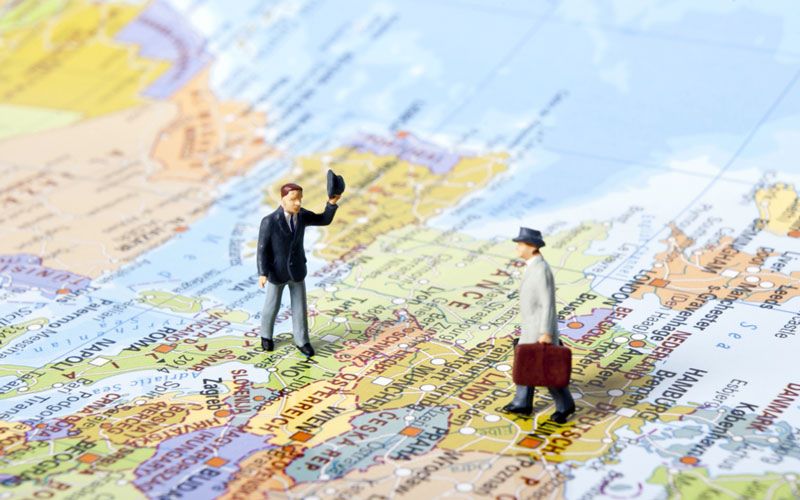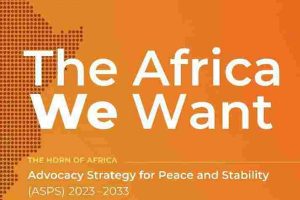
The recent evolution of the corona virus pandemic in Ethiopia makes at least two things very clear. The first is the fact that the virus is fast spreading in many communities and particularly in Addis Ababa which is the epicenter of the crisis. Until recently, the majority of affected people could be traced to foreigners or Ethiopians who stayed abroad and returned recently. This is now less and less the case and solid evidence of the virus spreading in local communities is emerging with frightening speed.
The second gateway to the corona virus is the lax state of control at border crossings where people are travelling in all directions without knowing that they are taking the virus with them from one place to the other. Border crossings in Africa in general and in the Horn of Africa in particular are not only few but they are also ill-managed and easy to move in and out without facing strict control measures in the context of the present pandemic.
Generally speaking, Horn of Africa countries have very porous borders through which legal and illegal activities are conducted. Most of the borders are artificially traced by the European colonial authorities that carved up their own sphere of influence and territorial claims without regard to the people living across those artificial borders. This nefarious colonial legacy has always been at the root of Africa’s division, conflict and poverty for much of the 20th century.
Even now, in the early decades of the 21st century, Africa’s problems are foreign-born by their nature. From border wars to cross-border epidemics and pandemics, Africa’s undoing have foreign origins. The age of globalization has speeded up the time and intensity with which new phenomena in all walks of life reach Africa. In former times, an epidemic starting in China, like the present corona virus might have take a long time to reach Africa or else it might have perished on its way. Transportation and trade were slow then and individual travels in the form of tourism were virtually unknown. This could shelter distant lands from the ravages of epidemics in faraway places. The first instance of an epidemic making its way from Europe to Africa or Ethiopia was the 1918 Spanish flu.
The advent of colonialism in the 20th century radically changed traditional African life and its isolation from the rest of the world. Later on, attempts to do away with this legacy have generally been failures because many African countries readily accepted the colonial divisions and even tried to consolidate them often with the active participation of the old colonialists and the new masters who had a stake in Africa’s divided status quo. The rationale for establishing the organization of African
Unity (OAU) that has now become the African Union (AU) was to end this colonial product and replace it with a kind of united states of Africa as Ghana’s first president and fighter for Africa’s total liberation Nkrumah advocated.
However, Africa still remains divided geographically although it achieved some measure of political unity and solidarity in last 70 or so years. Artificial borders are not only maintained as they were during the colonial era but also considered legitimate and worth fighting for by Africans themselves. Thus the Horn of Africa region has particularly witnesses border conflicts, territorial claims by post-colonial African regimes that led to so many tragedies. This tendency is not so far radically addressed although there have been a few attempts to overcome the colonial legacy through regional organizations that were expected to bring about regional economic integrations and unity.
Colonialism was hailed by its proponents as a civilizing mission. However, what colonialism did to African countries was the importation of unknown diseases to the continent. Italian colonialism, although a failure as far as occupation is concerned nevertheless succeeded in introducing some illnesses to Ethiopian communities that were previously unknown. Thus syphilis was believed to have been imported by the Italian fascists and caused important health problems in urban communities in particular where alcohol consumption and organized prostitution was also encouraged by the occupiers.
What is known as the decades of African independence and freedom from colonialism was also an attempt to do away with the notorious political and social legacies of the colonial period. However African who espoused this vision could only register a few success stories while failing to liquidate the colonial division of the continent which was at the root of the other divisions to this day.
One of the advantages of globalization is the tendency to speed up this vision of regional integration by linking it to global economic agendas and interests. This phenomenon was also evident in the Horn region where globalization proved a boon in some countries without however producing the much-talked about regional economic integration. It has at least brought about a temporary respite from border conflicts and territorial claims and counter-claims without producing the kind of trust and political commitment that could overcome the colonial legacy.
Globalization has added some dynamism in cross-border trade among African countries in the Horn and elsewhere. Outside interests have also been involved in this process by seeking the resources available in the region to meet their raw material needs in oil and other products while at the same time developing local infrastructures that would promote greater trade. In the process, countries of the Horn more recently started to engaged in cross-border trade and other economic activities.
This is however one side of the globalization narrative. With economic integration, Globalization also brought about the spread of diseases that were unknown in pre-colonial times in Africa. The advent of the HIV-AIDS pandemic may be controversial; but the general medical evidence that it started among the gay communities in the United States is still valid although attempts were being made to attribute it to chimpanzees in the African jungles.
The colonial legacy of artificial border demarcation and territorial division has also exacerbated by the refugee problems in most African countries that share not only borders but also populations with the same ethnic or national identities. In this age of the corona virus pandemic, Horn countries like many other African countries, are facing the threat of expansion of the pandemic in the course of economic and other economic and social communications.
Many African countries are currently engaged in containing imported cases of COVID-19 infections from Asia or Europe; which is a legitimate and urgent thing to do. However when it comes to controlling cases imported from neighboring countries through cross-border economic activities or refugee movements, the record seem to leave much to be desired.
Last week, the four cases of corona virus infections in Tigray regional state were said to be imported by truck rivers and their helpers who have been engaged in cross-border freight transport activities. As it was the case in Ethiopia during the HIV-AIDS pandemic more than 20 years ago, truck drivers and people who cross national border for economic reasons are the main victims of such infections.
What are the lessons that we can learn from the HIV crisis that may be relevant to the COVID-19 pandemic? The strategy to address the two pandemics may have some similarities. the battle against HIV transmission was mainly fought through education, awareness creation and some practical steps that were affordable at that time. The use of condoms was adopted as one of the key if not decisive factors in controlling the spread of HIV Aids. Similarly the current corona virus pandemic can also be fought with education, information sharing and the use of face masks and proper hygienic measures such as regular hand washing, social distancing or avoiding human contacts.
The fight against COVID-19 has one more advantage in the sense that it is being assisted by new communication technology and fast moving information as well as social media intervention with the help of various modern gadgets like the mobile phone. As these technologies are empowering in economic activities they can also be empowering in the control of the current pandemic. All these things were not invented some 30 years ago when the HIV-AIDS pandemic first emerged.
Cross border check points are not only used during conflicts. They are also instrumental for controlling the movement of people during pandemics so that the virus will not move from one place to another with the person knowing it. The corona virus pandemic can also be fought with technology. Border crossings can take temperature measurements from refugees or other people crossing borders in all directions. Testing points can be set up along the key crossing areas in order to check the status of the people and know whether or not they carry the virus and isolate them before they join their respective communities. Cheaper technologies are being developed for this purpose the be used for screening and testing a large number of people in order to know who is infected and who is not. For these things to happen however countries of the Horn that share borders need to join hands and pool their resources in order to fight the virus with a higher degree of success until a cure is found or a vaccine is developed.
The Ethiopian Herald May 17/2020
BY MULUGETA GUDETA





